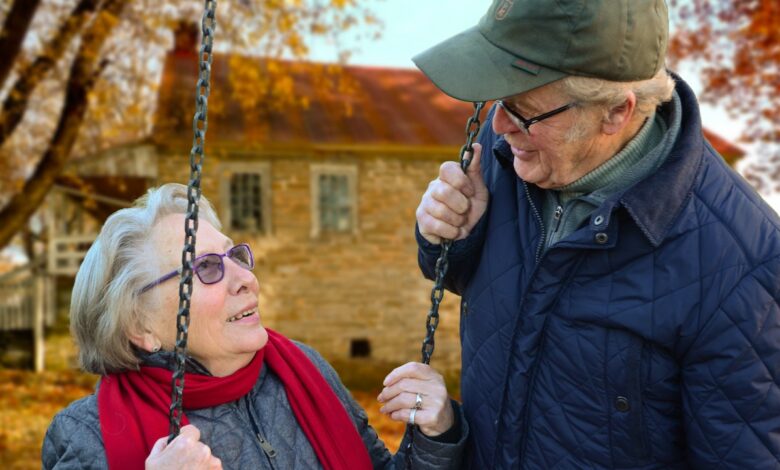Healthy Aging: Tips for Maintaining Physical and Cognitive Function 2023

Aging is a natural part of life, and as we get older, it becomes more necessary to look after our physical and mental health. Maintaining a healthy lifestyle and applying specific tactics can significantly help with healthy aging. In this post, we’ll look at several suggestions and approaches for keeping your physical and cognitive performance in 2023 and beyond.
Recognizing the Aging Process
Aging is a complex biological process in which our bodies undergo significant changes throughout time. It has an impact on both our physical and cognitive functions. Our metabolism slows down as we age, our muscle mass declines, and our bodies become more prone to chronic diseases. Furthermore, cognitive capacities may deteriorate, resulting in memory loss and decreased mental agility.
The Value of Physical Activity
Physical activity on a regular basis is necessary for good aging. Exercise promotes muscle strength, flexibility, and cardiovascular health. It also improves balance and lowers the danger of falling, which is especially important as we age. Aim for at least 150 minutes per week of moderate-intensity aerobic activity, as well as strength training exercises to maintain muscle mass.
Nutrition and Dietary Balance
A well-balanced diet is essential for good aging. Include fruits, vegetables, whole grains, lean proteins, and healthy fats in your diet. Keep yourself hydrated by drinking plenty of water. Avoid eating too many processed foods, sugary snacks, and saturated fats. Nutritional support is necessary for good physical and cognitive function.
Read More: Understanding Credit Scores: How to Improve Your Creditworthiness 2023
Maintain Physical Activity and Exercise on a Regular Basis
Physical activity is essential for good aging. Exercise on a regular basis helps to enhance cardiovascular health, muscle strength, flexibility, and balance. Walking, swimming, and yoga can have a substantial impact on general well-being and reduce the risk of chronic diseases.
Participate in Activities You Enjoy
Select exercises and activities that you enjoy. This increases the chances of sticking to a regular fitness routine.
Strengthening Training
Maintaining muscle mass and bone density as you age requires strength training. It might be as basic as lifting modest weights or utilizing resistance bands.
Consume a Well-Balanced Diet
Nutrition is critical to healthy aging. Aim for a well-balanced diet rich in fruits, vegetables, whole grains, lean proteins, and healthy fats.
Keep Your Body Hydrated
Staying hydrated is important for overall health, especially as we become older. Throughout the day, drink lots of water.
Limit Sugars and Processed Foods
Reduce your intake of processed foods and sugary snacks, which can cause inflammation and other health problems.
Make Brain Health a Priority
Cognitive function is a critical component of good aging. Mental workouts and hobbies might help you keep your brain sharp.
Participate in Cognitive Activities
Read a book, solve a puzzle, play brain-training games, or pick up a new skill. These exercises can assist you in keeping your mind active and engaged.
Connect and Socialise
Maintain solid social ties and partnerships. Regular social contact has been shown to improve cognitive performance and lower the risk of cognitive decline.
Read More: The Importance of Regular Exercise for a Healthy Life Style 2023
Get Enough Sleep
Sleep is essential for overall health, and it gets increasingly more so as we age. Each night, aim for 7-9 hours of quality sleep.
Establish a Restful Bedtime Routine
Create a calming ritual before night to indicate to your body that it is time to unwind.
Create a Relaxing Sleep Environment
Maintain a peaceful sleeping environment by keeping the room cold, dark, and quiet.
Stress Management
Chronic stress can have a negative impact on both physical and mental health. Use stress-reduction practices such as meditation, deep breathing, or yoga.
Spend Time Outside
Spending time outside and connecting with nature can help to alleviate stress.
Seek Help
If stress becomes too much for you, don’t be afraid to seek help from friends, family, or professional counselors.
Mental Exercises and Stimulation of the Mind
Maintaining cognitive function as you age requires keeping your brain busy. Engage in mental-challenging hobbies such as puzzles, reading, learning a new language, or playing musical instruments. Cognitive exercises strengthen brain connections and aid in the prevention of cognitive deterioration.
Getting Enough Sleep and Rest
Sleep is essential for general health and well-being. Each night, aim for 7-9 hours of unbroken sleep. Create a comfortable sleeping environment, and avoid using electronic gadgets before bed. Sufficient rest promotes cognitive function and lowers the risk of age-related cognitive problems.
Emotional Well-Being and Social Engagement
It is critical for good aging to maintain social connections and nurture relationships. Maintain contact with family, friends, and the community. Participate in activities that give you joy and fulfillment. A sense of purpose and general satisfaction is enhanced by social engagement and emotional well-being.
Preventive Care and Regular Health Checks
Regular health screenings and preventative care are critical for recognizing and treating potential health problems. Plan regular screenings for illnesses like hypertension, diabetes, and cancer. Maintain current vaccines and follow your healthcare provider’s preventive measures and suggestions.
Techniques for Stress Management and Relaxation
Chronic stress can have a negative impact on your physical and mental health. Use stress-reduction techniques such as deep breathing exercises, meditation, yoga, or participating in hobbies and activities that you enjoy. Relaxation techniques aid in stress reduction and overall well-being.
Keeping a Positive Attitude
A cheerful outlook on life can have a substantial impact on the aging process. Accept a grateful and optimistic outlook. Concentrate on what you can control and find significance in your life’s experiences. Maintain a feeling of purpose and surround yourself with positive influences to improve your general well-being.
Healthy Habits for Longevity
In addition to the specific techniques described above, the following general healthy habits should be included in your daily routine to promote good aging:
- Drink plenty of water throughout the day to stay hydrated.
- Limit your alcohol consumption and avoid smoking or using tobacco.
- To keep your body healthy, practice good cleanliness and skin care.
- Wear sunscreen and protective gear to protect your skin from excessive sun exposure.
- Maintain a healthy weight by eating a well-balanced diet and exercising regularly.
- Learn new talents or pursue hobbies to keep your mind engaged.
- Maintain dental health by practicing good oral hygiene.
- Manage chronic problems and adhere to your doctor’s advice.
- Maintain current knowledge of healthcare rules and practices.
Conclusion
Aging is a natural process, but with the correct tactics and lifestyle choices, we can keep our physical and cognitive functions as we age. We can improve our general well-being and experience a full life in 2023 and beyond by prioritizing regular physical activity, a balanced diet, mental stimulation, appropriate sleep, social involvement, and preventive treatment.
FAQs
What is the best workout for aging well?
Aerobic workouts, such as vigorous walking, swimming, or cycling, are excellent for promoting good aging. Strength training routines are also good for muscle mass maintenance.
Can a good diet help you live longer?
While a nutritious diet cannot stop the aging process, it can improve overall health and prevent the onset of age-related illnesses.
Is it too late for me to start exercising now that I am in my senior year?
It’s never too late to start working out. Regardless of age, even moderate physical activity can give several benefits.
What role does social interaction have in good aging?
Social engagement alleviates loneliness and isolation, improves mood, and increases cognitive function.
Is it possible to take vitamins to increase cognitive function?
While some supplements promise to improve cognitive function, it is critical to contact a healthcare expert before taking any supplements to ensure safety and efficacy.












2 Comments